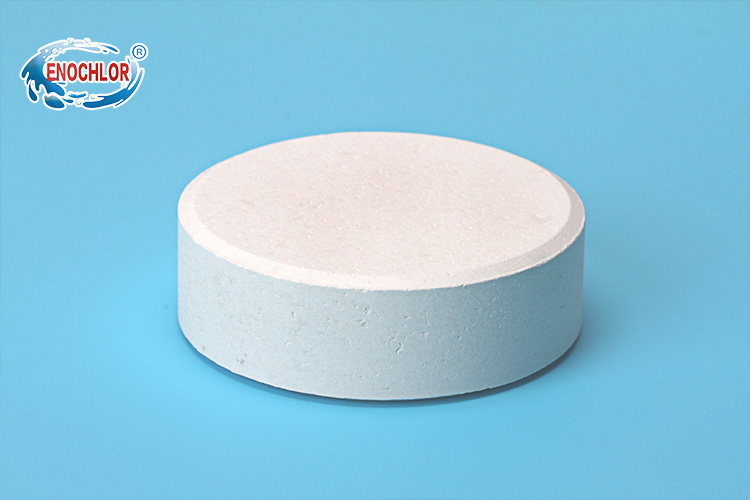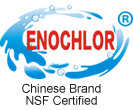28
2025
-
10
Understanding the Benefits of Chlorinated Drinking Water from China
Chlorinated drinking water from China offers significant benefits that extend beyond mere disinfection. Its role in safeguarding public health, ensuring water quality, and providing economic and environmental advantages cannot be underestimated
Chlorinated drinking water refers to water that has undergone treatment with chlorine or chlorine compounds to eliminate harmful microorganisms, such as bacteria, viruses, and protozoa. This process is crucial in ensuring that the water delivered to households and public facilities is safe for human consumption.
Chlorine acts as a powerful disinfectant, effectively destroying pathogens that can cause waterborne diseases. The chlorination process is not only about killing germs; it also involves maintaining a residual level of chlorine in the distribution system, ensuring that any potential contaminants introduced after treatment are also addressed.

The Importance of Water Treatment in Public Health
Water treatment is a vital component of public health initiatives. Contaminated water can lead to severe health issues, including gastrointestinal illnesses, reproductive problems, and neurological disorders. The World Health Organization (WHO) emphasizes that access to safe drinking water is a fundamental human right, and water treatment methods, particularly chlorination, play an integral role in achieving this goal.
In China, where rapid urbanization and industrialization have put immense pressure on water resources, the significance of effective water treatment cannot be overstated. Ensuring clean drinking water through chlorination helps mitigate the risks associated with waterborne diseases, thereby enhancing the overall quality of life.
How Chlorination Works: The Process Explained
The chlorination process involves several steps to ensure the effective disinfection of water:
1. **Pre-Treatment**: Water from natural sources undergoes pre-treatment to remove large particles and sediments. This step may involve sedimentation, filtration, and other methods.
2. **Chlorination**: Chlorine gas, sodium hypochlorite, or calcium hypochlorite is introduced into the water. The dosage depends on the water quality and the presence of contaminants.
3. **Contact Time**: After chlorine is added, water is held in a contact chamber for a specific duration, allowing the chlorine to interact with and neutralize pathogens.
4. **Residual Chlorine Maintenance**: A residual level of chlorine is maintained in the distribution system to protect water quality until it reaches consumers. This residual chlorine helps prevent any regrowth of microorganisms.
5. **Monitoring**: Regular testing and monitoring are conducted to ensure that chlorine levels remain within safe limits, as specified by regulatory standards.
The Benefits of Chlorinated Drinking Water
Health Benefits
Chlorinated drinking water provides numerous health benefits that are crucial for community well-being:
- **Reduction of Waterborne Diseases**: Chlorination effectively eliminates pathogens that can cause diseases like cholera, dysentery, and typhoid fever. This is particularly important in densely populated areas where the risk of outbreaks is heightened.
- **Enhanced Public Safety**: By maintaining a residual level of chlorine, the system can continue to protect against potential contamination, offering reassurance to the public that their drinking water is safe.
- **Improved Taste and Smell**: Chlorination can help eliminate unpleasant odors and tastes associated with certain microorganisms, ensuring that water is palatable for consumption.
Safety and Quality Assurance
Safety and quality are non-negotiable when it comes to drinking water:
- **Regulatory Compliance**: Chinese authorities have established stringent regulations and standards for water quality, ensuring that chlorinated water meets health and safety criteria.
- **Regular Testing**: Water quality is routinely tested for chlorine levels, microbial presence, and other contaminants, providing a robust framework for ensuring safe drinking water.
- **Public Trust**: Transparency in water quality monitoring fosters public trust in drinking water safety, essential for community health initiatives.
Economic Benefits
Investing in chlorination systems yields significant economic advantages:
- **Cost-Effective Treatment**: Chlorination is one of the most economical methods of water treatment, making it accessible for municipalities and communities.
- **Disease Prevention**: By reducing the incidence of waterborne diseases, chlorination helps lower healthcare costs related to treating such illnesses, saving governments and families money.
- **Enhanced Productivity**: Healthy populations are more productive. Access to clean drinking water through chlorination contributes to improved workforce health and efficiency.
Environmental Impact
Chlorinated water also contributes positively to environmental sustainability:
- **Sustainable Practices**: In contrast to other disinfection methods, chlorination is less energy-intensive, thereby minimizing the carbon footprint associated with water treatment.
- **Supporting Biodiversity**: By preventing the spread of harmful pathogens, chlorinated water helps maintain ecosystems by reducing contamination in natural water bodies.
- **Long-term Viability**: The use of chlorine in water treatment supports long-term sustainability goals, ensuring that communities can access safe drinking water for generations to come.
Chinese Water Quality Standards and Regulations
China has implemented strict regulations to ensure the safety and quality of drinking water. The "Sanitary Standards for Drinking Water Quality" outlines the permissible levels of various contaminants, including chlorine. Regular inspections and monitoring help maintain compliance with these standards, ensuring that the water supply remains safe for public consumption.
Municipalities are required to conduct routine testing, and data are made available to the public, fostering transparency and community involvement in water quality management.
Chlorinated drinking water from China offers significant benefits that extend beyond mere disinfection. Its role in safeguarding public health, ensuring water quality, and providing economic and environmental advantages cannot be underestimated. By understanding and embracing the benefits of chlorinated water, communities can work together to promote a healthier future, ensuring safe drinking water for all. As we navigate the complexities of water management in an increasingly urbanized world, chlorination remains a vital component of our public health infrastructure.
2023-04-23







